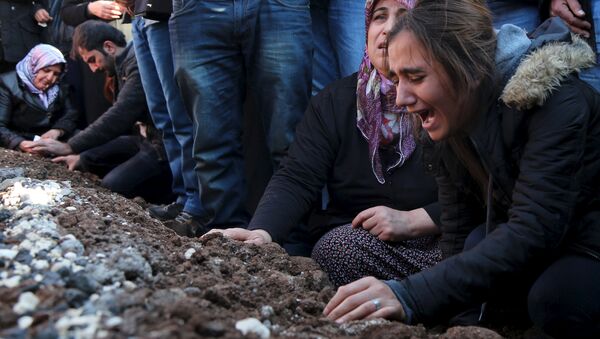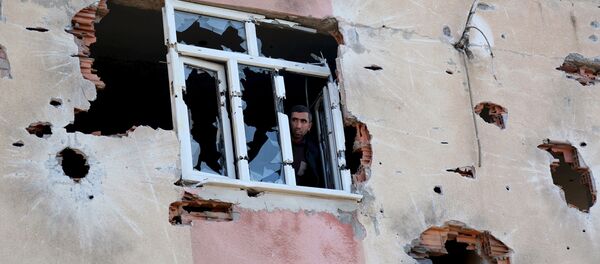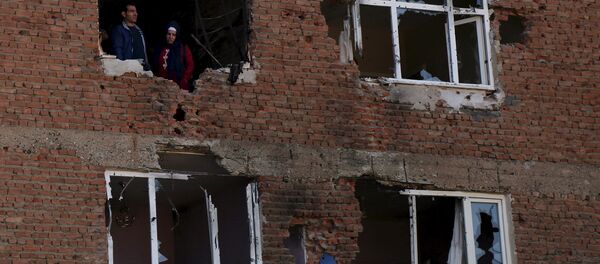There are four reasons for residents of the west of Turkey to be indifferent or even hostile to the state violence against Kurds in the southeast, as described in a fresh column published in Al Monitor.
The first reason is related to suppression of any opposition in the country.
“It is not easy to raise one's voice in Turkey against the Justice and Development Party (AKP) government on any issue, especially when it involves the [outlawed in Turkey Kurdistan Workers’ Party] PKK. Multiple times peace activists have fallen victim to terrorist attacks and arrests. For example, most recently 15 Dokuz Eylul University students were arrested in Izmir while protesting for peace,” Al Monitor explains.
The second reason is that Kurds, who don’t live in the southeast and don’t face everyday violence perpetrated by Ankara’s security forces, are highly assimilated by the Turkish majority.
“Although [the leader of the only pro-Kurdish parliamentary party, HDP, a Kurd himself, Selahattin] Demirtas is calling upon the people in western Turkey to raise their voices, even the majority of Kurds have not shown willingness to take on this call,” Al Monitor states.
To a large extent, such a low morale is intertwined with the first reason mentioned – simple fear for the repression machine of Erdogan’s Turkey. Even Turks who sympathize with Kurds are afraid to raise their voices.
"State bombing its own cities can be called 1 thing: terror state" Erdogan, 2013 Pic: Kurdish city Amed, 26.12.2015 pic.twitter.com/BRy0F47rPK
— Gilgo (@dijraberi) December 26, 2015
The third reason for people in western Turkey remaining silent as full-scale civil war in the southeast is getting momentum is the moral dilemma of speaking up while the number of deaths of police and soldiers steadily grows.
“The majority of people in the west do not view the current unrest as nonviolent resistance but as terror attacks. Several towns in the southeast that had a majority of HDP voters in the last elections have declared ‘self-rule’ and have started digging ditches around their towns. People in the west of Turkey cannot comprehend the meaning of self-governance or the necessity of the trenches, both of which have negative connotations,” Al Monitor details.
The last but not the least reason is the lack of trustworthy information. In Turkey, the majority still gets the news from TV, which is predominantly government-controlled. Social media may not serve as a viable alternative due to the abundance of biased and unverifiable information, Al Monitor notes.
“For decades there have been several incidents of mass violence without proper public reconciliation,” Dilek Gokcin, a film director who closely follows Kurdish matters, told Al-Monitor. “We live in a constant state of denial. So maybe the question ‘Why people are silent when there is a war?’ is not quite appropriate. There is no war here, the war is in Kurdistan. Ignorance then becomes the ultimate bliss. If you don't know, you cannot be held accountable, so most people have a rational apathy because they are helpless in the face of atrocities.”
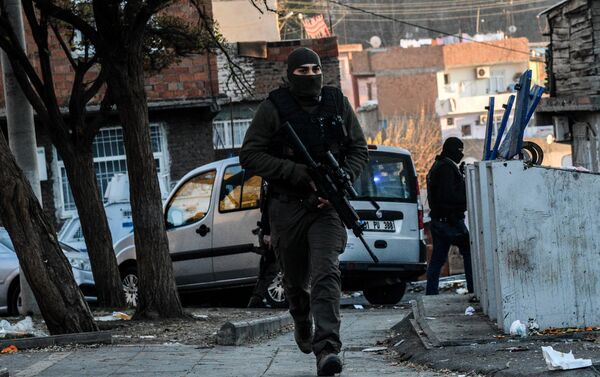
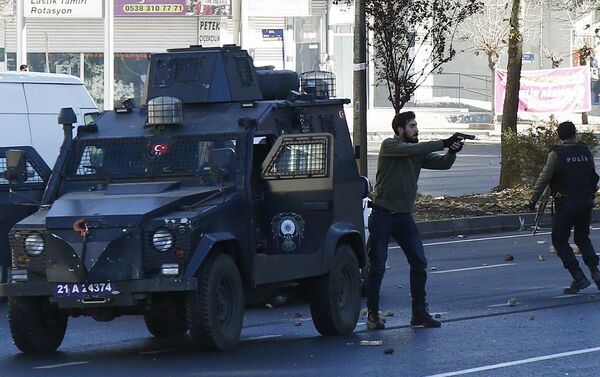
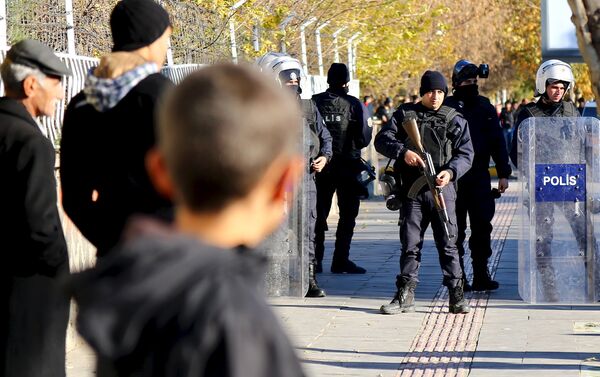
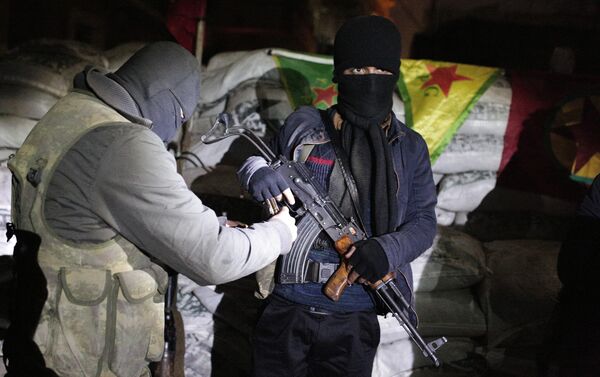
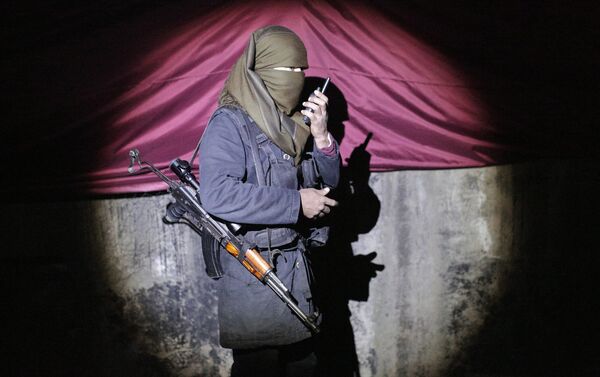
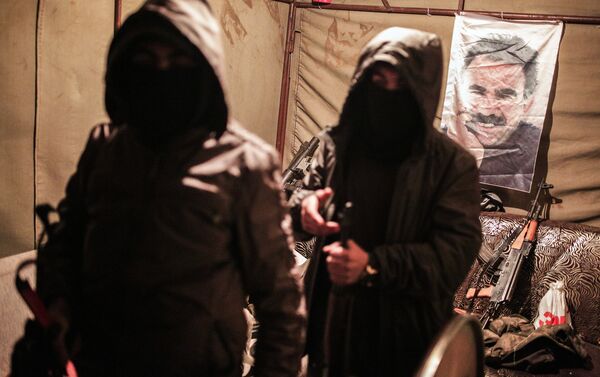
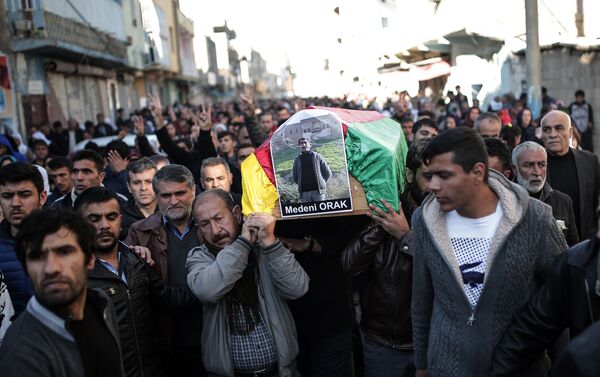
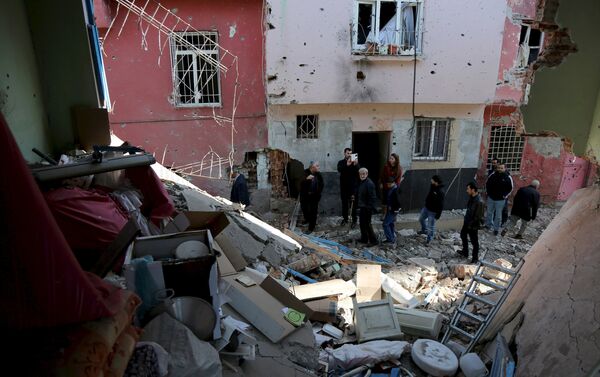
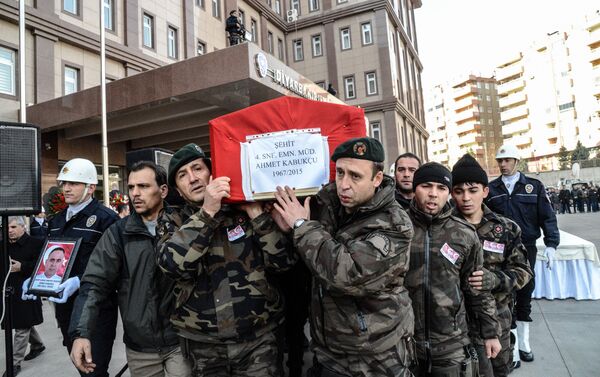
Three Turkish police officers were killed December 15 in a roadside bomb attack on their vehicle blamed on Kurdish rebels, security sources said, amid a new upsurge in violence in Turkey's troubled southeast. The three were killed in the Silvan district of the mainly Kurdish province of Diyarbakir as their armoured vehicle travelled on a main road, the security sources told AFP. Three other policemen were wounded.
/ AFP / ILYAS AKENGIN
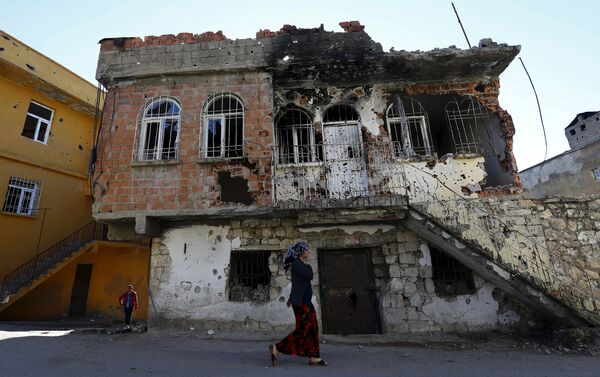
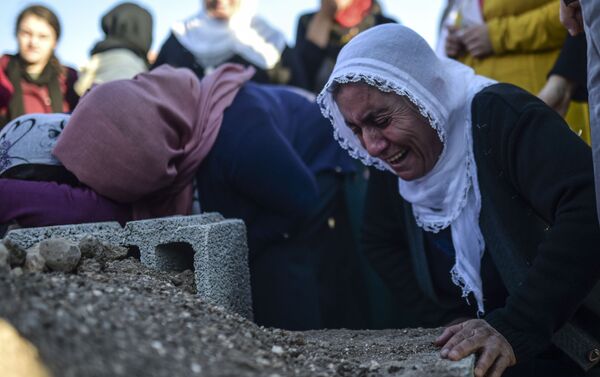
The government has imposed curfews in the mainly Kurdish towns of Cizre and Silopi, Nusaybin as security forces battle militants linked to the Kurdistan Workers' Party (PKK). / AFP / BULENT KILIC
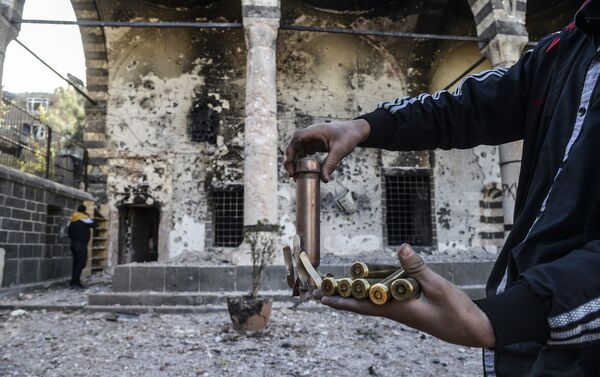
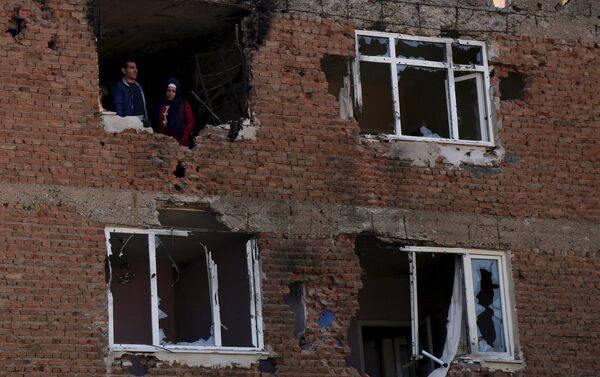
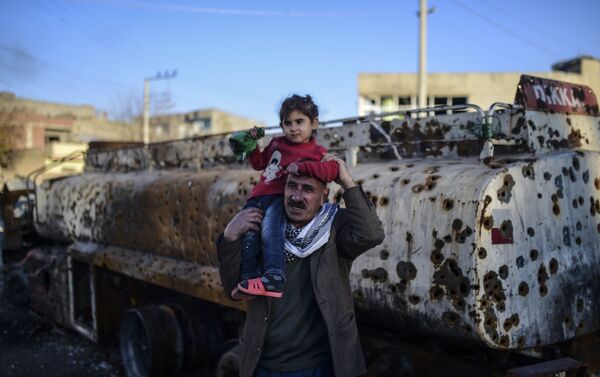
The number of Kurdish rebels killed in a massive Turkish military offensive in the restive southeast, a security source told AFP. The government has imposed curfews in the mainly Kurdish towns of Cizre and Silopi, Nusaybin as security forces battle militants linked to the Kurdistan Workers' Party (PKK). / AFP / BULENT KILIC
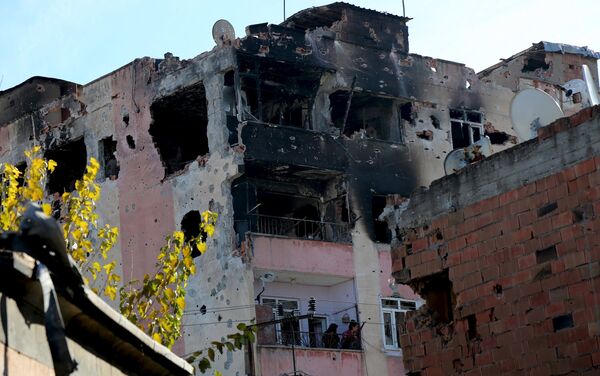
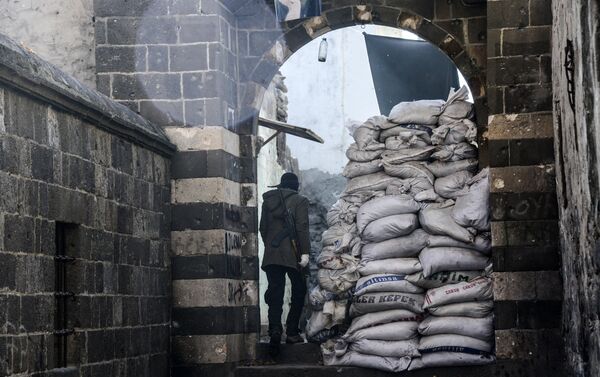
A policeman was killed by sniper fire on December 9, 2015 as he tried to defuse an explosive device in the Sur district of Diyarbakir province, which has been under military curfew for eight days. Turkey has been waging a relentless offensive against PKK strongholds in the southeast of the country and in northern Iraq following the collapse in July of a two-year truce with rebels.
/ AFP / Ilyas AKENGIN
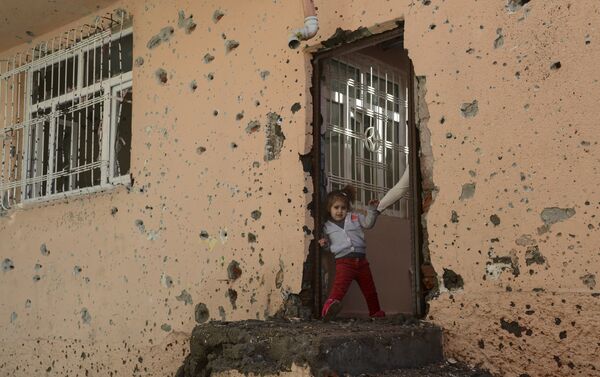
A policeman was killed on December 9, 2015 by sniper fire as he tried to defuse an explosive device in the Sur district of Diyarbakir province, which has been under military curfew for eight days. Turkey has been waging a relentless offensive against PKK strongholds in the southeast of the country and in northern Iraq following the collapse in July of a two-year truce with rebels.
/ AFP / Ilyas AKENGIN
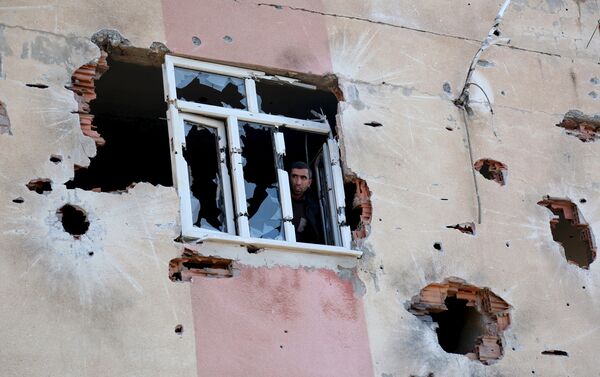
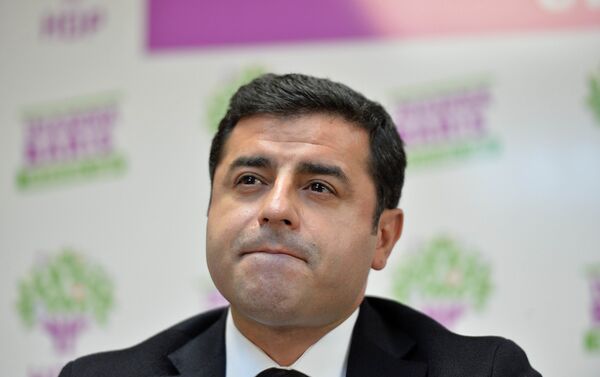
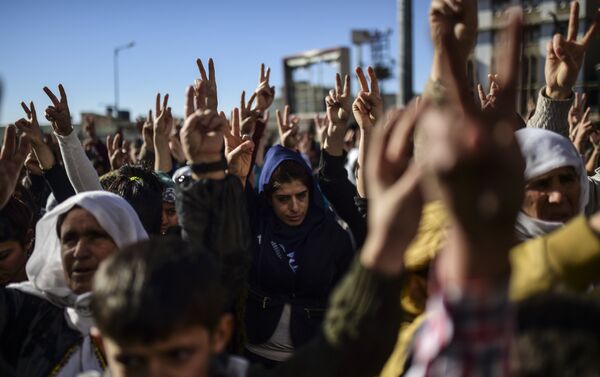
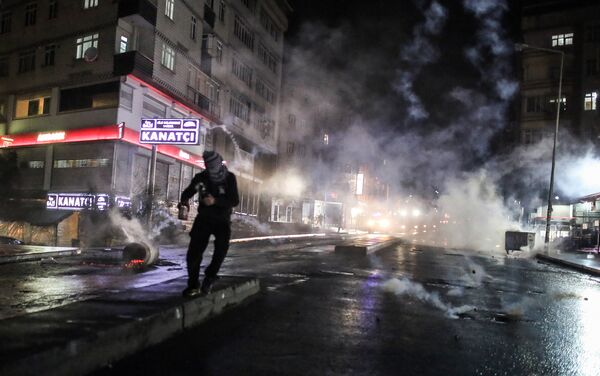
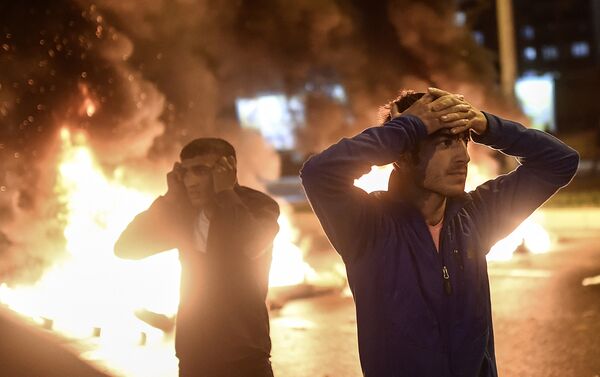
Three Turkish police officers were killed December 15 in a roadside bomb attack on their vehicle blamed on Kurdish rebels, security sources said, amid a new upsurge in violence in Turkey's troubled southeast. The three were killed in the Silvan district of the mainly Kurdish province of Diyarbakir as their armoured vehicle travelled on a main road, the security sources told AFP. Three other policemen were wounded.
/ AFP / ILYAS AKENGIN
The government has imposed curfews in the mainly Kurdish towns of Cizre and Silopi, Nusaybin as security forces battle militants linked to the Kurdistan Workers' Party (PKK). / AFP / BULENT KILIC
The number of Kurdish rebels killed in a massive Turkish military offensive in the restive southeast, a security source told AFP. The government has imposed curfews in the mainly Kurdish towns of Cizre and Silopi, Nusaybin as security forces battle militants linked to the Kurdistan Workers' Party (PKK). / AFP / BULENT KILIC
A policeman was killed by sniper fire on December 9, 2015 as he tried to defuse an explosive device in the Sur district of Diyarbakir province, which has been under military curfew for eight days. Turkey has been waging a relentless offensive against PKK strongholds in the southeast of the country and in northern Iraq following the collapse in July of a two-year truce with rebels.
/ AFP / Ilyas AKENGIN
A policeman was killed on December 9, 2015 by sniper fire as he tried to defuse an explosive device in the Sur district of Diyarbakir province, which has been under military curfew for eight days. Turkey has been waging a relentless offensive against PKK strongholds in the southeast of the country and in northern Iraq following the collapse in July of a two-year truce with rebels.
/ AFP / Ilyas AKENGIN
More than 100,000 people have been displaced due to armed clashes between Turkish security forces and militants from the Kurdistan Workers Party (PKK) in the country's majority-Kurdish southeastern regions, Turkey's Interior Ministry said on Thursday.

